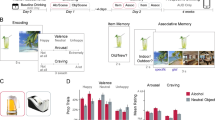Abstract
Rationale: Memory performance can be facilitated when the context in which retrieval occurs matches the context in which learning initially took place in two separate ways, in form of interactive or independent context. In the present study, the differential effects of alcohol, as independent context, on the free recall of items of high or low semantic associations were investigated. The high and low associations offer different strengths of interactive context at stimulus input, i.e. context that influences what will be stored. Methods: Using a state-dependent retrieval paradigm, alcohol (0.8 g/kg) or placebo was administered prior to encoding and/or retrieval and their effects were tested using measures of free recall. Forty-eight participants were tested according to a traditional state-dependent retrieval design where half of the subjects studied the items under alcohol (A), half under placebo (P) followed by retrieval of the items under A or P giving four groups (AA, AP, PA, PP). Results: Delayed free recall was significantly impaired when alcohol was administered prior to both encoding and retrieval of study material (P<0.05). Alcohol administered prior to encoding and prior to retrieval decreased especially the recall of high association items (P<0.05). Participants in the same-state groups (AA, PP) recalled fewer low association items than participants in disparate state groups (AP, PA; P<0.05). This effect of drug state on low associations may reflect an inability of weaker cues to facilitate retrieval in the presence of stronger cues (i.e. high associations and drug). Indeed, participants in the same-state groups recalled a greater percentage of material in form of high association items than participants in disparate-state groups (P<0.05). Conclusions: These results demonstrate that alcohol given at encoding and at retrieval specifically impairs retrieval of high association items. However, if the drug state is the same at encoding and at retrieval, the items with the high associations represent a higher proportion of the total recalled items. These data suggest that alcohol may provide an internal context that can facilitate retrieval of information, acquired in semantic context, which otherwise would have been lost.
Similar content being viewed by others
Author information
Authors and Affiliations
Additional information
Received: 22 September 1999 / Final version: 19 November 1999
Rights and permissions
About this article
Cite this article
Weissenborn, R., Duka, T. State-dependent effects of alcohol on explicit memory: the role of semantic associations. Psychopharmacology 149, 98–106 (2000). https://doi.org/10.1007/s002139900349
Issue Date:
DOI: https://doi.org/10.1007/s002139900349




